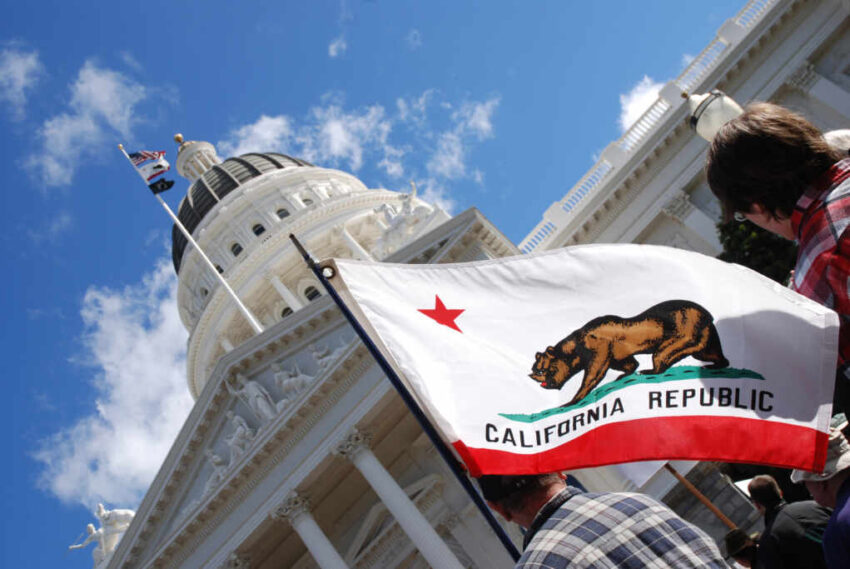California’s aggressive attempt to sidestep federal law on truck emissions faces a major constitutional showdown as the Trump administration’s DOJ sues to halt what it calls blatant state overreach.
Story Snapshot
- The DOJ has filed lawsuits against California after the state attempted to enforce strict truck emissions rules despite revoked federal waivers.
- President Trump and Congress acted in 2025 to invalidate California’s authority under the Clean Air Act to impose tougher vehicle standards.
- The legal battle centers on federal supremacy, state power, and the future of environmental regulation in America.
- Truckers and businesses get temporary relief as California’s zero-emission truck mandate for large fleets is suspended.
Trump Administration Blocks California’s Emissions Mandates
The U.S. Department of Justice (DOJ) has launched two lawsuits against California in August 2025, targeting the state’s efforts to enforce strict truck emissions standards after federal Clean Air Act waivers were revoked. The lawsuits argue that the California Air Resources Board (CARB) is acting unlawfully by attempting to implement its Advanced Clean Fleets regulations. This move marks a direct federal intervention in the decades-long debate between California and Washington over environmental regulation.
California’s regulatory ambitions have long been a point of contention for those who view the state’s climate agenda as an attack on economic freedom and states’ rights. Historically, California leveraged special waivers from the Environmental Protection Agency (EPA) to impose stricter vehicle emissions standards, often leading other states to follow suit. However, the Trump administration’s use of the Congressional Review Act in June 2025 revoked EPA waivers for CARB’s heavy-duty truck rules, stripping California of its unique legal standing and reasserting federal supremacy. As a result, CARB withdrew its request for a waiver on January 14, 2025, effectively suspending the electric truck mandate for high-priority fleets in the state.
DOJ Slaps a New Lawsuit on California https://t.co/9MCW9rJlmn
— James Campbell (@JamesCa14047260) August 15, 2025
Legal Showdown: State vs. Federal Authority
This legal battle highlights the constitutional limits of state power when it collides with federal law. The Clean Air Act grants California limited authority to set its own emissions standards, but only with EPA approval. By withdrawing the waiver request and pushing forward through alternative enforcement mechanisms, California is accused of undermining both the letter and spirit of federal law. The DOJ’s lawsuits assert that CARB’s actions violate the supremacy clause of the U.S. Constitution and put businesses in regulatory limbo. Critics argue that unchecked state power threatens the integrity of national commerce and the uniform rule of law.
For the trucking industry and supply chain operators, the suspension of the Advanced Clean Fleets requirements provides immediate relief from costly mandates and regulatory uncertainty. Truckers, fleet operators, and manufacturers have consistently opposed California’s aggressive timelines for zero-emission vehicle adoption, citing technical, financial, and logistical barriers. The pause in enforcement allows businesses to avoid disruptive and expensive compliance measures, at least for now. However, other CARB programs, like Advanced Clean Trucks and Clean Cars II, remain in effect where valid waivers exist, keeping some regulatory burdens alive for the industry.
Implications for States’ Rights and National Policy
The outcome of these lawsuits will set a critical precedent for the future of environmental regulation and the balance of power between states and the federal government. If California is blocked from enforcing stricter mandates absent explicit federal approval, other states may be deterred from pursuing similar policies, reinforcing the federal government’s role as the ultimate arbiter of national standards. For many conservatives, this represents a victory for constitutional order, economic freedom, and protection against radical agendas that threaten American industry and everyday livelihoods.
Environmental activists, meanwhile, see the DOJ actions as a setback for climate progress and state innovation. Yet for those frustrated with years of bureaucratic overreach, escalating costs, and politicized “green” mandates, the Trump administration’s assertive defense of federal authority and regulatory restraint is a welcome change. The nation now watches as the courts decide whether California’s regulatory ambitions will be curtailed or if states will retain their ability to chart independent—and often radical—policy paths that impact the entire country.
Sources:
California pulls the plug on electric truck mandate for large fleets
Zero-Emission Road: Medium- and Heavy-Duty Strategies | California Air Resources Board
Zero Emission Truck Mandate | J. J. Keller DataSense
Cars and Light Trucks Are Going Zero: Frequently Asked Questions | California Air Resources Board
Advanced Clean Trucks | California Air Resources Board
Click this link for the original source of this article.
Author: Editor
This content is courtesy of, and owned and copyrighted by, https://republicanpost.net and its author. This content is made available by use of the public RSS feed offered by the host site and is used for educational purposes only. If you are the author or represent the host site and would like this content removed now and in the future, please contact USSANews.com using the email address in the Contact page found in the website menu.








